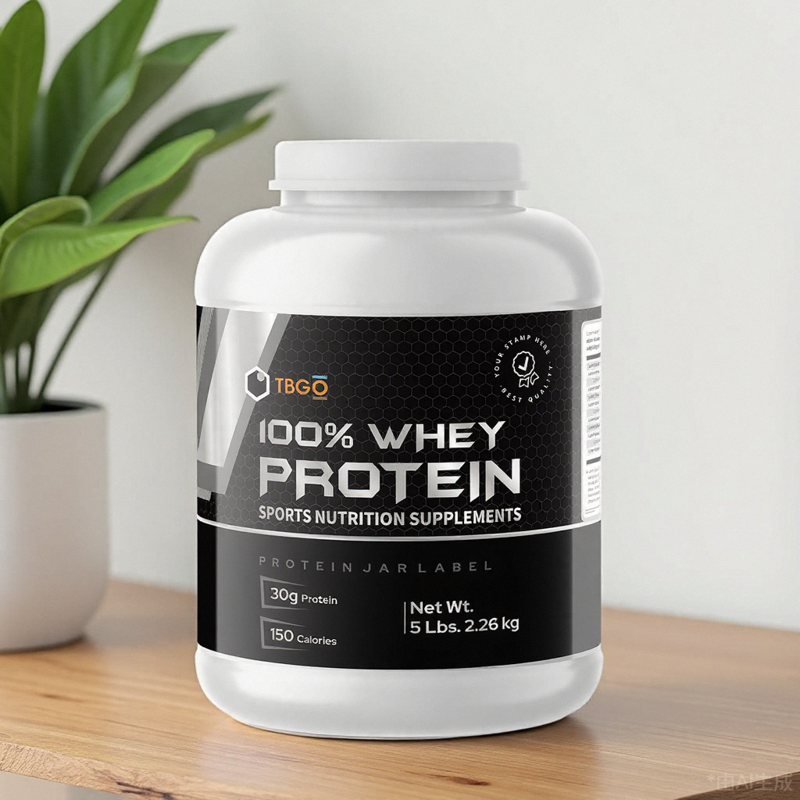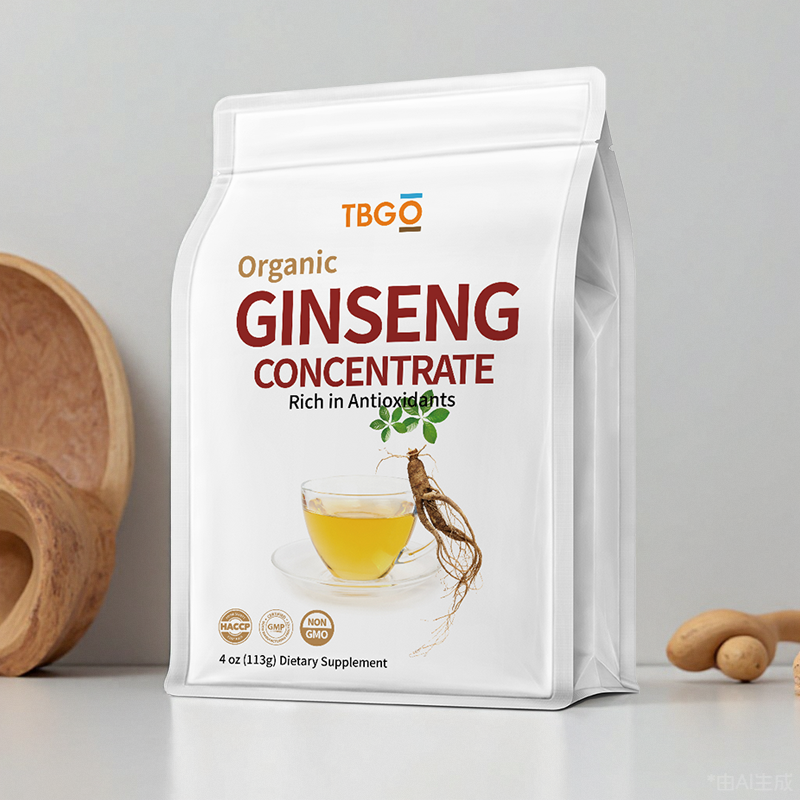What Is High-Protein Soybean Powder? Understanding Its Composition and Production
Soy Protein Isolate: The Science Behind the Supplement
High-protein soybean powder begins with soy protein isolate (SPI), a concentrated form containing Z% pure protein. As detailed in Frontiers in Nutrition (2022), SPI is produced by removing carbohydrates and fats from defatted soybean flakes. This results in a nutrient-dense powder ideal for increasing protein intake without excess calories.
Amino Acid Profile of Soy: Why It’s a Complete Plant-Based Protein
Soybeans provide all nine essential amino acids, making them one of the few plant-based complete proteins. Their balanced levels of leucine, isoleucine, and lysine support muscle synthesis and metabolic function, positioning high-protein soybean powder as a top choice for plant-based nutrition.
From Soybean to Powder: The Concentration and Isolation Process
Manufacturers convert raw soybeans into powder through precise steps:
- Dehulling: Removing fibrous outer layers
- Solvent extraction: Separating oil and fats
-
Alkaline washing: Dissolving non-protein components
Advanced methods described in Nature (2024) achieve 90–95% protein purity while preserving solubility and other functional properties.
Nutrition Facts of Soybeans and Protein Yield in Final Products
Whole soybeans contain approximately 40% crude protein, but processing increases this to 65–90% in final powders. A 30g serving of SPI delivers 25–27g of protein—nearly triple that of unprocessed soybeans—alongside iron, calcium, and phosphorus for well-rounded nutritional support.
Types and Functional Properties of High-Protein Soybean Powder in Food Systems
Soy Flour, Concentrate, and Isolate: Comparing Protein Content and Uses
Soybean powder with high protein content actually exists in three primary versions. First there's regular flour containing around 40 to 50 percent protein. Then we have concentrate at about 65 to 70 percent, and finally isolate which hits over 90% purity. When making isolates, manufacturers strip away most of the carbs and fats through special processing techniques, resulting in something really pure that works well in top quality products. Most people use soy flour when baking because it's cheaper, but isolates tend to show up more often in those expensive protein shakes and fake meat products where maximum protein matters most.
Functional Benefits of Soy Protein Isolates (~90% Protein) in Processing
Soy protein isolates offer strong water-binding and fat absorption capabilities. These traits enhance moisture retention in plant-based meats and maintain texture stability during freeze-thaw cycles—key advantages for frozen vegan products requiring consistent quality.
Textured Vegetable Protein (TVP) and Its Role in Food Texture Enhancement
Through extrusion technology, textured soy proteins develop fibrous structures that mimic animal meat. TVP can replicate the chewiness of chicken in nuggets or the crumble of ground beef in tacos, meeting sensory expectations critical to consumer acceptance in alternative protein markets.
Solubility, Emulsification, and Thermal Stability in Industrial Applications
Soy protein dissolves effectively at neutral pH, enabling smooth integration into beverages. Its emulsifying strength stabilizes dressings and dairy-free cheeses, while thermal resilience allows it to perform reliably under high-heat conditions common in baking and snack manufacturing.
Health Benefits and Scientific Insights on High-Protein Soybean Powder Consumption
Cardiovascular Health and Cholesterol Reduction: Evidence from Clinical Studies
Clinical research shows that consuming 25g of high-protein soybean powder daily reduces LDL cholesterol by 7%, thanks to bioactive peptides that inhibit intestinal cholesterol absorption. A 2022 review highlights improved arterial flexibility in 68% of participants after 12 weeks of supplementation, linked to soy’s arginine-rich profile.
Soy Protein for Weight Management: Promoting Satiety and Metabolic Balance
Due to its slower gastric emptying rate, high-protein soybean powder enhances satiety 30% more than whey protein, according to a 2023 metabolic study. Additionally, soy isoflavones help regulate adiponectin secretion, improving insulin sensitivity and supporting sustained energy use in active individuals.
Beyond Muscle: Nutritional Advantages for Bone, Gut, and Hormonal Health
Regular intake improves bone mineral density by 5.2% in postmenopausal women, attributed to soy’s calcium-magnesium synergy and genistein content. With 8g of fiber per serving, it also promotes Bifidobacteria growth, reducing markers of intestinal inflammation by 42% in clinical trials.
Debunking Myths: Soy, Phytoestrogens, and Hormone Disruption Concerns
A 2022 analysis in Frontiers in Nutrition confirms that soy isoflavones have 1,000 times weaker estrogenic activity than human hormones. Population studies show no adverse effects on thyroid function or testosterone levels in men consuming up to 75g/day of soy protein isolate, dispelling long-standing concerns about hormonal disruption.
High-Protein Soybean Powder in Active Lifestyles and Plant-Based Diets
More and more athletes and people following vegan diets are turning to soybean powder packed with protein as their go-to supplement. What makes this stuff special? Well, it contains those nine essential amino acids our bodies need for fixing muscles after workouts and keeping metabolism running smoothly. When we compare soy to alternatives like pea or rice protein, there's a big difference in quality. Soy scores top marks with a PDCAAS rating of 1.0, which means it helps preserve lean muscle mass during tough training sessions about 23 percent better than other plant proteins according to recent studies from last year's sports nutrition analysis. From an environmental standpoint too, growing soybeans requires way less water overall – roughly 76% less actually – and creates around 90% fewer greenhouse gases when producing the same amount of protein compared to traditional dairy farming methods as noted in last year's agricultural sustainability report.
The market for clean label plant proteins has grown like crazy since 2020, jumping about 142%. Flexitarians and eco minded millennials are behind this trend, looking for stuff that's not heavily processed but still packs a punch in terms of performance. According to recent industry research from 2024, around three quarters of people who eat plant based foods care most about getting products that have good protein content plus they want them to be kinder to the planet. That's precisely why soybean powder stands out so much these days. With improvements in how well it dissolves and masks flavors, manufacturers can now incorporate it into all sorts of products like post workout shakes, veggie burgers, and vegan protein bars without messing with the taste or texture. As a result, we're seeing more folks in both fitness circles and general dietary groups picking up on this stuff.
Manufacturers have started teaming up with eco-friendly soybean growers lately. About two thirds of all new sports nutrition products hitting shelves this year actually contain soy protein isolate as their main component. The move makes sense for athletes looking to perform better while also being kinder to the planet. Soybeans naturally enrich the soil through nitrogen fixation, which cuts down on chemical fertilizers needed. Research from regenerative agriculture studies shows these legumes can slash synthetic fertilizer requirements by anywhere between 40 and 60 percent when compared to other types of protein crops growing in fields today.
Innovations in Food Technology: High-Protein Soybean Powder in Plant-Based Alternatives
Formulating Plant-Based Meats with Soy: Texture, Flavor, and Nutrition
Plant based meats are getting a major boost from high protein soybean powders that tackle those three big hurdles for consumers texture, taste, and nutritional value. The magic happens with soy protein isolate which contains about 90 percent protein. When processed through special techniques like extrusion and hydration, it creates those fibrous textures similar to real meat muscles. A study back in 2020 looked at various meat alternatives and confirmed this works pretty well. Beyond just mimicking meat, these soy bases help keep things juicy by holding onto moisture while adding that savory umami flavor people love. Looking at the numbers, 100 grams gives around 25 grams of complete protein just like beef does but with roughly 40 percent less saturated fat according to USDA data from last year.
Dairy Alternatives Enhanced by Soy Protein: From Milk to Yogurt
The mild flavor profile of soy combined with its ability to mix things together makes it a go to option for all sorts of dairy free foods these days. Research published in Food Bioscience back in 2024 showed something interesting too insoluble fibers from soybeans can actually make yogurt thicker by around 30 percent when compared with regular thickening agents. And get this coffee shops everywhere are starting to use hydrolyzed soy protein in their plant based milk options. These new formulas actually produce good quality foam just like regular milk does, which has helped the growing need for cafe style plant milks that don't fall flat when making lattes or cappuccinos.
Scaling Sustainable Food Solutions with Soy-Based Ingredients
The global soybean derivatives market is projected to grow at 8.13% CAGR through 2034, fueled by processing innovations that cut water use by 50% compared to animal proteins (Globenewswire 2025). Concentrated soybean powder requires 75% less land per gram of protein than beef, aligning with circular agriculture goals.
Future-Proofing Diets: The Role of Soy in Global Food Security
Soybean powder has a shelf life of about twelve months and produces only 2.5kg of CO2 per kilogram compared to beef which clocks in at around 27kg. This makes it increasingly attractive as a reliable food source when dealing with unpredictable weather patterns caused by climate change. According to estimates from the Food and Agriculture Organization, if we expand our use of soy based products across the globe, there's potential to cut down on agricultural emissions by roughly 8 percent by the year 2040 simply because less livestock would need to be raised for meat production.
FAQ
What is soy protein isolate and why is it important?
Soy protein isolate is a concentrated form of protein derived from soybeans, containing about 90% pure protein. It is significant because it offers a high-quality protein source while excluding carbohydrates and fats, making it ideal for those looking to increase protein intake without excess calories.
Is high-protein soybean powder beneficial for weight management?
Yes, high-protein soybean powder promotes satiety more than other proteins and contributes to metabolic balance, making it beneficial for weight management.
How does high-protein soybean powder support cardiovascular health?
Consuming high-protein soybean powder can reduce LDL cholesterol and improve arterial flexibility, supporting overall cardiovascular health.
Are there any myths about soy and hormones?
Yes, some myths suggest soy disrupts hormones. However, research shows soy isoflavones have much weaker estrogenic activity compared to human hormones, and no adverse effects on thyroid or testosterone levels are observed in men consuming soy protein.
What role does high-protein soybean powder play in plant-based diets?
High-protein soybean powder is a complete protein, offering all essential amino acids, making it an excellent supplement for athletes and those on plant-based diets to support muscle repair and metabolic health.






